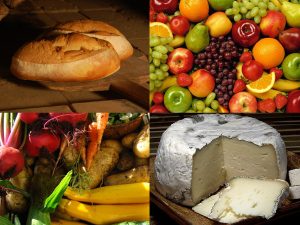Owen Paterson, Secretary of State for Environment, Food & Rural Affairs, said today that environmentalists who oppose GM food are ‘wicked’. This is why he is wrong.
GM crops are produced by global corporations. Now this is the thing that is crucial to understand: global corporations do not do what they do to feed people or to eradicate hunger. They do what they do to make money, and nothing else. If it doesn’t make money, they don’t do it. It’s that simple.
If it’s more profitable to make fizzy drinks, chewing gum, crisps and cheese strings for obese Westerners rather than provide basic foodstuffs for the hungry, then that’s what they’ll do. And it is, and they do.
The people who work for global corporations are not evil (although they may be misguided or unsympathetic for working for global corporations in the first place) – global corporations have to focus on shareholder value or they’ll go under. It’s the system that’s wrong rather than individual companies or people.
Feeding the world is best achieved via a network of small farmers and local markets – but of course global corporations and their stooge politicians are not interested in a system like that, because they can’t make money from it. See this article – small farms and smallholdings produce more food per acre than large monoculture farms.
World hunger is an economic rather than a technological problem, and therefore no amount of technology can solve it, because it will be used to produce more processed food for the well-fed rather than the poor. We can only solve the problem by breaking the grip of global corporations on the world’s food supply – every year they control more of our food.
We support the conclusions in a recent Greenpeace report about small-scale success stories for the future of agriculture.
The most important thing you can do to help is to pledge to give less money to global corporations. For example, by:
- shopping in small independent shops rather than giant supermarkets
- producing some of your own food
- not eating processed or GM foods
- buying locally-produced food – e.g. farmers’ markets, farm shops, veg box schemes
- joining WWOOF, to learn about growing and support the organic movement
- spreading the word









